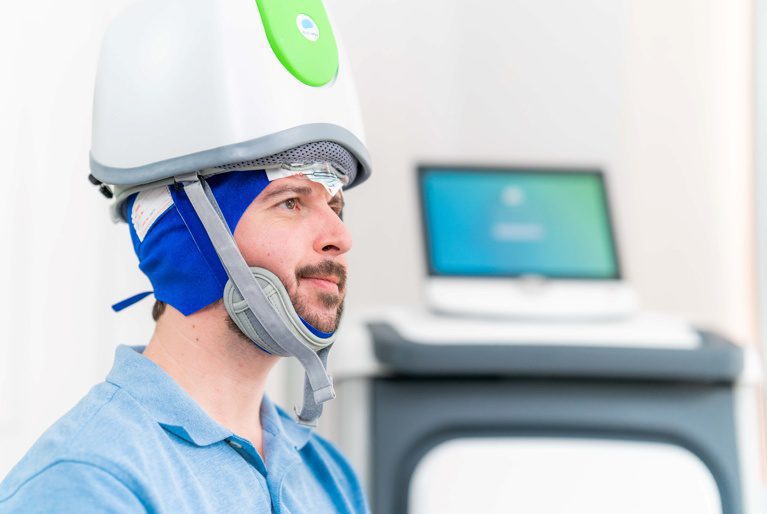The highly addictive nature of nicotine inhalation, manifested through extremely adverse withdrawal symptoms that occur when one attempts to quit smoking, makes the smoking cessation process as a whole, a monumental task. It also causes those battling a nicotine addiction to wonder, “Where are there smoking cessation programs near me?” For them, the following article attempts to lay out the different, more easily available cessation treatment programs on the market. Read on to find out more.
So, what is smoking addiction? At its core, it is the compulsive need to inhale nicotine, a highly addictive stimulant found in the leaves of the tobacco plant (as such, it is also called tobacco or nicotine addiction). Tobacco products such as cigars, cigarettes, and more recently e-cigarettes all have the addictive nicotine as a main component. Inhaling nicotine causes it to bind with nicotinic cholinergic receptor sites in the brain, prompting the release of a mood-elevating neurotransmitter called acetylcholine. This then creates a pleasant, calming effect, and as it wears off, the smoker looks to smoke again, in an effort to regain that same sensation.

The incredible addictiveness of nicotine is manifested in three significant ways:
The above-mentioned binding process explains nicotine’s biological addiction mechanism. But in addition to its strong attachment to the brain’s receptors, nicotine addiction also seems to have a genetic side to it: due to a genetic predisposition, certain individuals will find themselves more inclined to develop a smoking addiction and will find it harder to quit once they do.
The social context in which smoking addiction evolves has also been shown to play a key role in its development. Smoking with friends and a feeling of belonging to a desired social group often colors smoking as a sought-after, pleasurable experience, long after those initial moments of initiation have passed. This is particularly true at a young age, as nearly nine out of ten smokers begin smoking as adolescents.
More recently, studies have highlighted that smoking is much more prevalent among individuals belonging to a lower socioeconomic status, within relatively higher-income countries. One theory for this tendency refers to the “intimidating” aura that smoking is perceived through: an individual wielding a cigarette might be more associated with maturity and deterrence, encouraging those seeking to present themselves as such to pick up this habit.
The statistics on smoking addiction are grim: 18.7% of the general population and 13.7% of the world’s adult population are considered smoking addicts. Within the US alone, 45 million individuals are regular smokers. And through its hazardous effects on one’s physical health, smoking causes 8 million deaths a year: more specifically, smoking has been linked to the developments of cancer, cardiovascular diseases, diabetes, and lung disorders, to name a few conditions.
Smoking also has a detrimental effect on one’s mental health, with irritability, as well as symptoms of anxiety and depression all appearing as a result of its addictiveness (and at stronger levels of averseness when trying to quit). 33% of individuals battling a mental health condition are also smokers. Those with depression are twice as likely to smoke, and those facing schizophrenia are three times as likely. Though the directionality here is yet unclear (i.e., are smokers more likely to develop a mental health condition or the other way around?), studies have shown that the more severe an individual’s mental health condition is, the higher the chance they will also smoke.
After gaining some understanding into the definition of smoking addiction and the magnitude of its effect on both the individual smoker and society at large, it is time to examine the possible, relatively nearby treatment options.
To do so, it is important to consider the more effective treatments to have been recognized, and a good place to start with this is the FDA. The Food and Drug Administration is a federal agency charged with, among other issues, reviewing the mental and physical health treatments currently available to US consumers. In regard to smoking, it has recognized a number of treatments for their safety and efficacy:
○ Varenicline (also sold under the name Chantix) works by binding with the brain’s nicotinergic receptors, thereby preventing the elated feeling that normally comes from smoking, while also reducing the severity of nicotine withdrawal symptoms. Its side effects can include nausea, headaches, sleeping difficulty, vivid dreams, diarrhea, constipation, and dry mouth. It is considered the most effective smoking cessation treatment course.
○ The exact mechanism of Bupropion (also sold under the names Zyban or Wellbutrin) is not yet fully known. It is also used as an antidepressant, particularly in cases of seasonal depression or for targeting a general lack of energy that can arise from depression. Possible bupropion side effects include dry mouth and insomnia.

Due to smoking’s harmful effects on the respiratory system, the American Lung Association also provides its own recommendations to nearby smoking cessation treatment programs. It focuses on group sessions as a means to facilitate cessation.

The American Heart Association similarly appeals to smokers in an effort to convince them to quit smoking. It refers smokers to phone and online support services for those looking to quit in a number of languages: